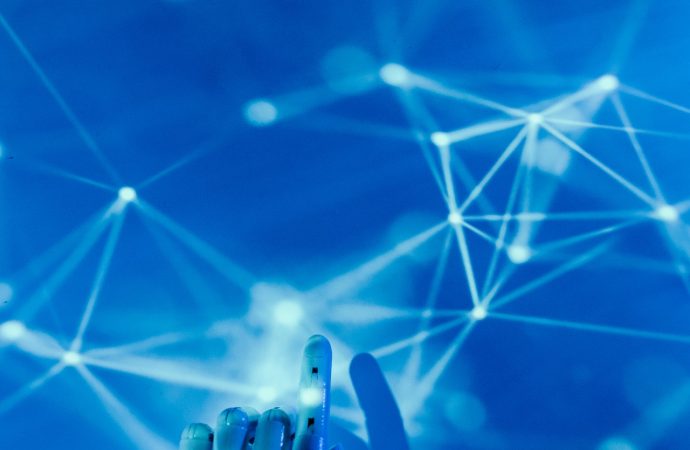Introduction AI (Artificial Intelligence) has experienced impressive developments lately, revolutionizing different sectors, which includes healthcare. The incorporation of artificial intelligence, especially ChatGPT and advanced Language Models (LLM), has enormous potential to reshape health outcomes. By improving disease detection to present customized treatment choices. Artificial intelligence has demonstrated potential when delivering efficient and reliable medical services.
Introduction
AI (Artificial Intelligence) has experienced impressive developments lately, revolutionizing different sectors, which includes healthcare. The incorporation of artificial intelligence, especially ChatGPT and advanced Language Models (LLM), has enormous potential to reshape health outcomes. By improving disease detection to present customized treatment choices. Artificial intelligence has demonstrated potential when delivering efficient and reliable medical services. Nevertheless, alongside the guarantees it provides, Artificial Intelligence also presents concerns regarding ethics and reliability. These anxieties have to be dealt with using strong policy enforcement. In this piece, we investigate the possible applications of artificial intelligence and ChatGPT in healthcare settings. Additionally, we investigate the related issues and offer suggestions for developing a framework of dependable medical expertise with the help of ChatGPT.
Potential Implementations involving Artificial Intelligence and Conversational AI in the Medical Field
Artificial intelligence models provide numerous advantages when used in healthcare. To begin with, they have the ability to analyze extensive data sets for recognizing patterns and projecting outcomes that human healthcare providers could overlook. The capability of AI to analyze medical images, digital health records, and individual data, including health background, signs, and genetic composition, can lead to rapid and more reliable diagnoses. Additionally, it can cause better patient results and reduced healthcare expenditures.
Moreover, ChatGPT introduces the idea of round-the-clock patient assistance by employing virtual assistants. People can now consult with healthcare professionals and obtain customized data from these AI-powered bots. These successfully captures their attention in the course of their medical journey. Automating administrative tasks, like setting up appointments and handling patient records, strengthens healthcare providers to have extra time for patient care.
ChatGPT further contributes a vital part in the field of mental health assistance. This provides customized treatment and guidance to clients in a state of need. Through the analysis of large datasets, Predicting disease outbreaks is possible with AI, detect patients at high risk, and boost population health through predictive analytics.

Photo by Tara Winstead: https://www.pexels.com/photo/robot-pointing-on-a-wall-8386440/
Anxieties about Automation in the Medical Industry
Despite the potential of AI is enormous, worries about how reliable it is and its capacity to cause harm must not be disregarded. A main worry is rooted in the production of wrong or deceptive answers from ChatGPT. The precision of AI models greatly depends on the knowledge they are instructed upon. Unfair or insufficient data can result in incorrect outcomes. Erroneous diagnoses or medical advice can result in serious outcomes. The outcomes may involve negative impact on the patients or potentially deadly results.
Yet another major concern includes strengthening preexisting prejudices in the field of healthcare. If an Artificial Intelligence model, like Chatbot GPT, is trained using data that mainly consists of patients from a particular population segment, it may create biased answers that have a negative influence on various communities. Nevertheless, steps can be taken to reduce this prejudice by broadening the training data and integrating justice measures while building the model. Confronting these prejudices is essential for guaranteeing unbiased and equal medical services for everyone.
Strategies for Assure the Development of Trustworthy Information
In order to utilize the complete capabilities of the ChatGPT model in the healthcare industry while minimizing the concerns stated above, comprehensive policies must be adopted. Creating governing organizations for monitoring the progress and application of machine learning models within the medical sector is of utmost significance. This guarantees the moral principles are maintained and the safety of patients is given priority. These organizations are responsible for determining guidelines for exactness, trustworthiness, and protection. This guarantees that artificial intelligence models are built with ethics and transparency. Government regulation guarantees healthcare practitioners utilize ChatGPT adequately and following ethical norms.
Furthermore, recommendations for the application of medical AI algorithms must be created. The instructions are expected to give explicit guidance to doctors and nurses about the suitable time and manner of utilizing these frameworks. These guidelines must also help with the comprehension of conclusions created by machine learning algorithms. That would simplify for healthcare providers to integrate them into their work. Individuals should be notified regarding the utilization of artificial intelligence models during their medical attention and receive permission to view their records to foster accountability. It will further empower individuals in making knowledgeable choices about their health treatment.
Dealing with the possible biases within artificial intelligence models demands focus to the utilized data for their instruction. Guaranteeing precision and inclusiveness within the training dataset is of utmost importance. Through integrating varied data sets that include varied socio-economic groups, prejudices can be reduced. These outcomes for a more equitable and broader AI algorithms.
To strengthen the formation of dependable medical expertise using ChatGPT, policies for model transparency and explainability are vital. Nevertheless, these policies should be meticulously executed to guarantee that they do not violate patient confidentiality or the protection of sensitive medical details. It is essential for medical professionals to comprehend how artificial intelligence models make judgments. Such comprehension promotes reliance regarding the model’s forecasts and proposals. Clarity guarantees that medical practitioners can explain the decisions made by the model to their clients and coworkers.
Finally, ongoing monitoring and assessment of AI algorithms for example, ChatGPT are vital. Frequent evaluations guarantee that the models continuously fulfill the strictest criteria in terms of accuracy and trustworthiness. All identified problems can be resolved quickly, consequently boosting the model’s effectiveness and the safety of patients.
Conclusion
AI, notably ChatGPT, holds the promise to change healthcare. This can enhance diagnoses, medical interventions, and patient treatment. Nevertheless, it is crucial to handle its incorporation carefully. Recognizing the moral issues and possible drawbacks is essential. Through the establishment of robust regulatory bodies, developing guidelines, maintaining data accuracy, and promoting model transparency, AI in medicine can be leveraged for its transformative power. These actions guarantee the well-being of patients and unbiased healthcare provisions for everyone. When used responsibly, AI, can prove to be extremely valuable in advancing medical procedures. Ultimately, it leads towards a improved and shinier future for the global community.

















Leave a Comment
Your email address will not be published. Required fields are marked with *